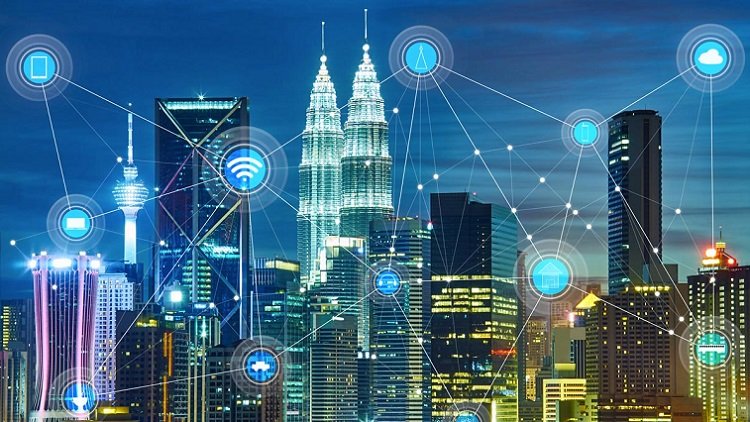
Seven out of 10 companies in building sector plan to increase IIOT spending
More than 70% of medium-to-large organizations in the buildings and cities sector in the UAE and Saudi Arabia expect to increase spending on digitalization and Industrial Internet of Things (IIoT) technologies in the next five years, according to a new survey by global technology leader Honeywell.
 Findings from the “IIoT Market Spotlight – UAE & Saudi Arabia” report, which Honeywell has launched in partnership with YouGov and IDC, also reveal that senior decision-makers in the buildings and cities sector are looking to IIoT technologies to capture key benefits including improved operational efficiencies (53%), time savings (50%) and increased revenues (26%).
Findings from the “IIoT Market Spotlight – UAE & Saudi Arabia” report, which Honeywell has launched in partnership with YouGov and IDC, also reveal that senior decision-makers in the buildings and cities sector are looking to IIoT technologies to capture key benefits including improved operational efficiencies (53%), time savings (50%) and increased revenues (26%).
The growing appetite for investment in digital transformation comes as regional governments push forward with the implementation of smart city initiatives. Research by IDC shows spending on smart city technologies in the Middle East and Africa is expected to increase to $2.7 billion by 2022, up from $1.3 billion in 2018. Experts attribute the positive forecast to the acceleration of digitalization within urban ecosystems as environmental and economic benefits become clear.
“IIoT, big data and analytics technologies are helping improve the safety, security, productivity, and energy efficiency of urban areas around the world while reducing operating and maintenance expenses and cutting energy costs,” said George Bou Mitri, vice president and general manager for Honeywell Building Technologies in the Middle East, Turkey and Africa.
“By aggregating data from disparate systems, we can gain powerful operational insights and enable real-time decision-making that brings many benefits, ranging from improved traffic management, security, and crowd monitoring in cities, to enhanced occupant comfort and reduced downtime for a building’s mechanical assets,” Bou Mitri added.
Even with increased spending and appetite for digital transformation there remains challenges for the buildings and cities sector to overcome to realize the benefits of digitalization. Almost half (43%) of surveyed executives highlight a lack of digital culture and a lack of qualified staff and training in their organization as a key hurdle to the adoption of IIoT technologies. More than a third (37%) of respondents said data protection issues are a key concern, and 34% cite budgetary pressures as presenting a key obstacle.
To support organizations to overcome challenges and help realize the benefits of IIoT technologies, Honeywell has launched two innovation and knowledge-exchange hubs in the UAE in the past year. The company will also open a new training and knowledge-sharing hub for IIoT technologies in Riyadh, Saudi Arabia, representing continued significant investment and commitment to digitalization efforts.
The Honeywell Masdar Innovation Center in Abu Dhabi and the Honeywell Technology Experience Center in Dubai are designed to encourage collaboration and engagement between stakeholders and facilitate the co-creation of industry-specific solutions through the adoption of IIoT technology. Together, the centers demonstrate solutions for a range of sectors including smart buildings and cities.
Other survey findings include:
- No longer a ‘nice to have’: More than 65% of decision-makers in the buildings and cities sector across the UAE and Saudi Arabia say IIoT technologies are critically important to business operations today or will become so in the next five years.
- Increased focus on cybersecurity: Executives in both the UAE and Saudi Arabia report a growing appetite for investments in cybersecurity, with 72% of respondents looking to boost spending in the next five years.
- Cost reduction is a key driver: More than 40% of surveyed executives in the buildings and cities sector say IIoT technologies will help reduce operational expenses by 20% or more in the next five years.
In the Middle East for more than 60 years, Honeywell’s solutions blend physical products with advanced software to create value for customers while supporting long-term national development visions and economic diversification across the region. The company’s diverse hardware and software solutions promote greater safety, security and energy efficiency for cities and more than 10 million buildings worldwide by leveraging advanced data analytics and cloud-based technologies.